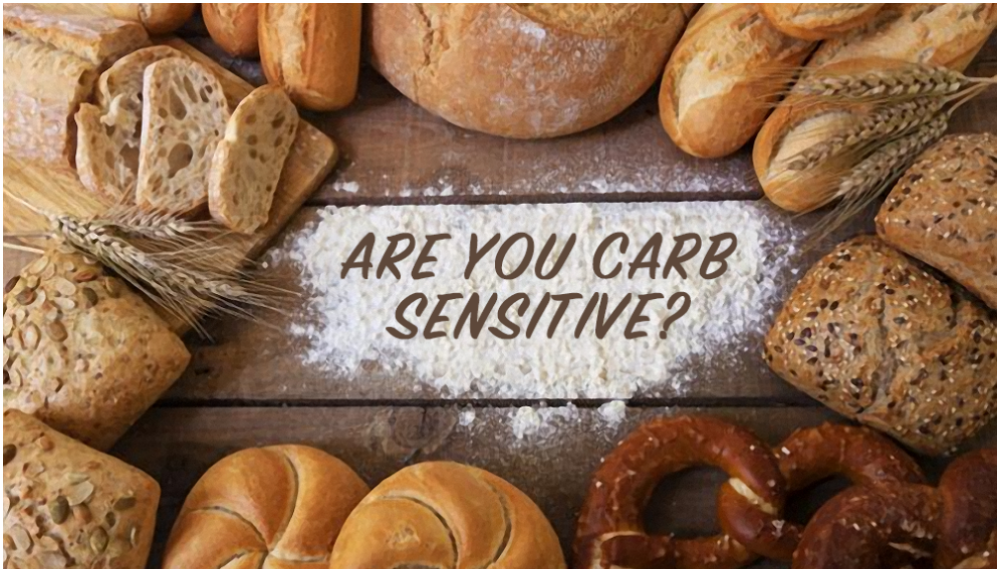In our office, we see many patients complaining of resistant weight gain, sugar cravings, energy drops and overall fatigue. Did you know that all of these could be related to a form of sensitivity to carbs?
What are carbs?
Carbohydrates, along with proteins and fats, are one of three macronutrients that our body uses for fuel. Carbs essentially break down into sugar molecules that the body uses as a source of energy, although what is important to keep in mind is how quickly this breakdown process happens!
Simple carbohydrates, like processed grains, cereals and added sugars/sweeteners (yes, including natural sweeteners like honey and agave) are the ones that break down quickly and raise blood sugar soon after consumption.
Complex carbohydrates, such as vegetables, legumes and whole grains (ie. quinoa, buckwheat, bulgar, oats) are the ones which are broken down slowly, so don’t cause as drastic an increase in blood sugar levels.
Although simple carbohydrates can be quite gratifying to eat (not to mention, tasty), it is important to have everything in moderation!
What happens to carbs after we eat them?
When carbohydrates are processed in the body and are broken down into sugars, they then need to enter our cells with the help of a hormone called insulin
When we eat any carbohydrate, as blood sugar rises, normally, so do levels of insulin which help us process these sugars. In the case of diabetes, blood sugar regulation is out of balance due to either a lack of insulin production or lack of insulin response (insulin insensitivity).
Carbohydrate sensitivity, as discussed below, is different from diabetes and is simply due to an overload of the body’s digestive functions to process carbohydrates.
What is a “carb sensitivity”?
A sensitivity, is different from an allergy, where one might experience allergic reactions to a particular food group (ie. hives, itching, watery eyes).
In the case of a sensitivity, there may be general symptoms such as low energy, changes in mood, appetite, digestion, weight gain, or worsening of existing symptoms (ie. acne, eczema, PMS).
A sensitivity to carbohydrates falls along the same lines, where carbohydrates (especially simple carbs as discussed earlier) are not processed properly or efficiently. This can cause drastic fluctuations in blood sugar which can cause the above mentioned symptoms and can eventually lead to insulin resistance.
However, this should not be confused with a lack of enzymes or an autoimmune condition related to digestion of carbohydrates, such as Celiac disease or Type I Diabetes.
Of course, not everyone is sensitive to carbohydrates! Take our test to determine if this may be something that is affecting you!
Test yourself!
Answer the following questions and keep track of how many times you respond “yes”
Tips to Manage a Carbohydrate Sensitivity:
1. Opt for smaller portions of carbohydrates
According to Canada’s new food guide, carbohydrates (complex carbs) should take up one quarter of your plate. Instead or having a large portion of carbs, include a healthy protein and fat with each meal. These other macronutrients will help to stabilize blood sugar levels and can control carbohydrate sensitivity!
Examples of foods that contain both fat and protein include: nuts, seeds (ie. flaxseed, chia seeds, pumpkin seeds), nut/seed butters, eggs, unsweetened Greek yogurt, fish, meat, etc.
2. Avoid carbohydrates at breakfast
This can help prevent an energy slump in the afternoon, and will prime the body to have better blood sugar balance throughout the day!
Instead, consider low-carbohydrate breakfast options such as unsweetened Greek yogurt, chia seed pudding with nut butter, or a vegetable omelette. Check out our Blog Post on 4 Low Carb Breakfast Options as well consider adding MCT oil (oil extracted from coconut) to your morning coffee to help reduce cravings, appetite and even help with weight loss!
3. Listen to your body’s hunger cues
If you ate less than 3 hours ago and you’re finding yourself hungry again, this is not an indication of good blood sugar control and actually means you probably had too many simple carbs the meal before.
Some people even find they feel this way after a meal of complex carbs, such as oatmeal, which is a bigger indication of carb sensitivity, meaning you body doens’t respond well to the ups and downs in your blood sugar levels, even if they are not as drastic as with complex carbs.
The best intervention for this is to cut back or eliminate carbs all-together and go back to tip #1 and 2 and make sure you eat more balanced meals.
4. Consider adding chromium to your daily regimen
Chromium is a mineral which is found in small doses in our food, although when supplemented in therapeutic dose can improve our bodies response to insulin (which in turn can help with blood sugar regulation) [1,2]!
We have seen chromium supplementation work well for patients, even to help reduce sugar cravings! Chromium picolinate is the one that is the most studied, and therapeutic dosages range from 200-1000 mcg [1].
However, ensure to consult with your healthcare provider to determine if this is right for you, or if there are any interactions you should be aware of.
Want to learn more?
Be sure to check out our Free Hormone Quiz and get a customized report on what hormonal imbalances you may have that could be contributing to your symptoms!


No Comments